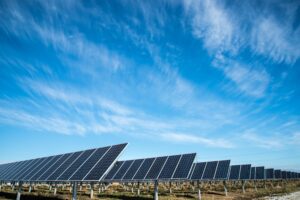Embracing the Sun: Why Pakistanis Should Swiftly Adopt Solar Installation
As Pakistan grapples with energy challenges, the call for sustainable and affordable solutions grows louder. In this pursuit, solar installation emerges as a beacon of hope, offering myriad benefits that make it imperative for Pakistanis to embrace this technology without delay.
- Abundant Solar Resource: Pakistan is blessed with an abundance of sunlight throughout the year. With an average of over 300 sunny days annually, harnessing solar energy is a natural fit. Embracing solar installations allows Pakistanis to tap into this vast and consistent resource, providing a reliable and sustainable power source.
- Energy Independence: Solar installations empower individuals and businesses to take control of their energy production. By reducing reliance on traditional grid systems, Pakistanis can achieve a level of energy independence, shielding themselves from the impact of power shortages and fluctuating utility costs.
- Cost Savings: The initial investment in solar installation pays off in the long run through substantial cost savings. Solar energy is essentially free once the system is in place, offering a significant reduction in monthly electricity bills. This financial relief is particularly attractive in a country where rising energy costs can burden households and businesses.
- Environmental Impact: Pakistan, like the rest of the world, faces environmental challenges. Adopting solar energy is a tangible way for individuals to contribute to a greener and more sustainable future. Solar installations produce clean, renewable energy, significantly reducing carbon footprints and mitigating environmental degradation.
- Government Incentives: The Pakistani government recognizes the importance of renewable energy and provides incentives to encourage solar adoption. Subsidies, tax breaks, and favorable financing options make solar installations more accessible and financially viable for a broader segment of the population.
- Job Creation: The growing demand for solar installations opens up new opportunities for job creation. From manufacturing solar panels to installation and maintenance services, the solar sector has the potential to contribute significantly to employment generation and economic growth.
- Grid Stability: Solar installations contribute to grid stability by decentralizing power production. Distributed solar systems reduce the strain on the central grid during peak demand periods, enhancing overall grid resilience and reliability.
- Remote Electrification: Solar installations are instrumental in bringing electricity to remote and off-grid areas. Pakistan has numerous such regions where conventional power infrastructure is challenging to implement. Solar energy can bridge this gap, providing much-needed electricity to underserved communities.
- Technological Advancements: The solar industry is witnessing rapid technological advancements. Adopting solar installations now allows Pakistanis to benefit from cutting-edge technologies that enhance efficiency, storage capacity, and overall system performance.
- Global Leadership: By embracing solar installation, Pakistan has the opportunity to position itself as a global leader in renewable energy adoption. Taking bold steps towards a sustainable future not only benefits the country but also sets an example for the rest of the world.
In conclusion, the time for Pakistanis to rush towards solar installation is now. The advantages, ranging from energy independence and cost savings to environmental stewardship, position solar energy as a transformative force for individuals, businesses, and the nation as a whole. As sunlight continues to grace Pakistan generously, harnessing this power is not just a choice; it is a responsibility towards a brighter, cleaner, and more sustainable future.

